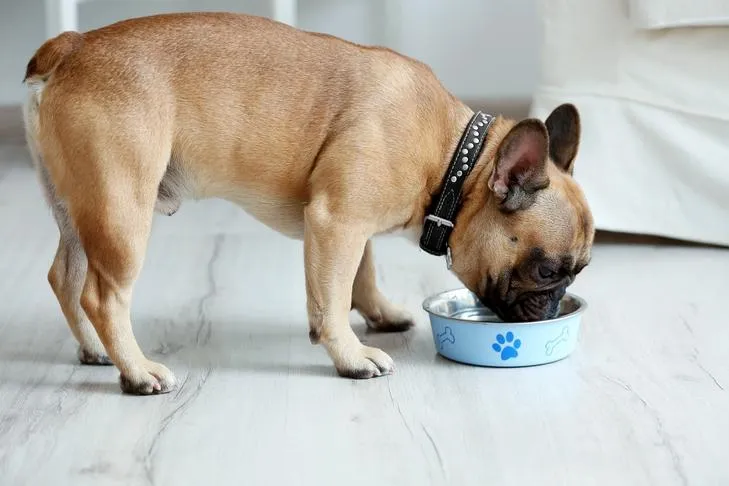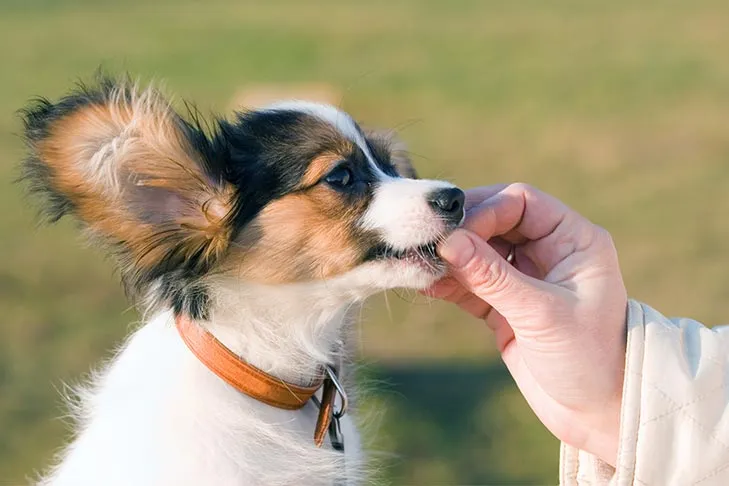Sharing food with our beloved canine companions is a joy for many pet owners, but it’s crucial to know which human foods are safe and beneficial for them. While commercial dog food provides a balanced diet, offering certain human foods as treats or supplements can add variety and provide additional nutrients. This guide will explore common human foods that dogs can safely enjoy, ensuring you make informed choices for your furry friend’s health and happiness. For a more comprehensive overview of dietary dos and don’ts, you might find a list of what dogs can and cannot eat particularly useful.
Safe and Nutritious Human Foods for Your Dog
Ensuring your dog receives proper nutrition goes beyond just their regular kibble. Introducing certain human foods can offer a range of health benefits, from essential vitamins and minerals to healthy fats and proteins. However, moderation is key, and always ensure foods are prepared correctly to avoid any potential risks. Consulting your veterinarian about any new additions to your dog’s diet is always recommended, especially if your dog has specific health concerns or dietary restrictions.
Bread
In small, plain quantities, bread is generally safe for dogs, provided it contains no spices, yeast dough, or harmful ingredients like raisins. While it offers no significant nutritional value, a small piece won’t cause harm. Homemade bread without preservatives is a better option than store-bought varieties, though it’s best viewed as an occasional, non-beneficial treat due to its carbohydrate and calorie content.
Cashews
Cashews can be a fine treat for dogs in moderation. They contain beneficial nutrients such as calcium, magnesium, antioxidants, and protein. However, despite being lower in fat than some other nuts, overfeeding can contribute to weight gain. Always offer unsalted cashews, and only a few at a time, to avoid excessive fat and sodium intake.
Cheese
Many dogs love cheese, and it can be a good treat in small to moderate amounts, provided your dog isn’t lactose intolerant (a rare but possible condition). Opt for lower-fat varieties like cottage cheese or mozzarella to prevent excessive fat intake. There are even dog-specific chews made from dried cheese that many dogs enjoy.
 An American Dog rests its head on a kitchen table, looking intently at a piece of cheese.
An American Dog rests its head on a kitchen table, looking intently at a piece of cheese.
Coconut
This versatile fruit offers several benefits for dogs. Coconut contains lauric acid, known for its antibacterial and antiviral properties. It can also help improve bad breath and soothe skin conditions such as hot spots, flea allergies, and general itchiness. Both coconut milk and coconut oil are safe for dogs. When offering coconut, ensure the furry outer shell is removed to prevent choking hazards or intestinal blockages.
Corn
Corn is a common ingredient in many commercial dog foods, recognized for its nutritional value. However, the cob itself is indigestible for dogs and can cause intestinal blockages, which can be life-threatening. If you share corn with your dog, always ensure it is removed entirely from the cob.
Eggs
Fully cooked eggs are an excellent source of protein and can be particularly soothing for an upset stomach. It’s crucial that eggs are thoroughly cooked, as raw egg whites can interfere with biotin absorption, potentially leading to a biotin deficiency over time. Scrambled or boiled eggs, without any seasonings, are great options.
Fish
Fish is packed with healthy fats and amino acids, offering a significant health boost for dogs. Salmon and sardines are especially beneficial. Salmon provides essential vitamins and protein, while sardines offer easily digestible bones, which are a good source of extra calcium. Always ensure fish is fully cooked and cooled before serving, and meticulously remove all small bones from salmon and other fish (sardine bones are soft enough to be safe). Avoid giving uncooked or undercooked fish, as it can contain parasites that are harmful to dogs. Limit fish intake to no more than twice a week.
Ham
While not the healthiest option, ham is generally safe for dogs to eat in very small quantities. Its high sodium and fat content mean it should only be an occasional treat, not a regular part of their diet. Excessive consumption can lead to gastrointestinal upset or contribute to health issues over time.
 A French Bulldog eats from a bowl in a home setting, enjoying its meal.
A French Bulldog eats from a bowl in a home setting, enjoying its meal.
Honey
Honey is rich in nutrients such as vitamin A, potassium, calcium, magnesium, copper, and antioxidants. Small amounts of local honey may help dogs with seasonal allergies by introducing small amounts of pollen, potentially building immunity. Beyond consumption, honey can also be used topically to treat minor burns and superficial cuts due to its natural antiseptic properties.
Milk
Dogs can drink milk, but caution is advised. Some dogs are lactose intolerant and may experience digestive upset. If your dog tolerates dairy, a small amount of milk occasionally is acceptable. However, water remains the best and safest beverage choice for dogs. Observe your dog for any signs of discomfort after consuming milk.
Peanut Butter
Peanut butter can be a fantastic source of protein, heart-healthy fats, vitamins B and E, and niacin for dogs. Always choose raw, unsalted peanut butter. Critically, you must check the label to ensure it does not contain xylitol, an artificial sweetener that is highly toxic and potentially fatal to dogs. For information on what foods to avoid, refer to what foods can you not feed your dog.
Peanuts
Unlike some other nuts, plain peanuts are safe for dogs in moderation. They offer good fats and proteins that can benefit your dog’s health. However, like cashews, excessive intake of fat can lead to pancreatic issues, so offer them sparingly. Always avoid salted peanuts, as high sodium levels are detrimental to canine health.
Popcorn
Unsalted, unbuttered, and air-popped popcorn can be an acceptable treat for your dog in moderation. It contains riboflavin and thiamine, which support eye health and digestion, along with small amounts of iron and protein. Ensure all kernels are fully popped to prevent choking hazards or dental damage from unpopped kernels.
Pork
Pork is a highly digestible protein source, rich in amino acids. While it contains more calories per pound than some other meats, it can be a good addition to a dog’s diet. Some pets might also be less likely to experience allergic reactions to pork compared to other common proteins. Ensure any pork offered is cooked thoroughly and free from excessive fat, skin, seasonings, onions, or garlic, which can be harmful.
Quinoa
Quinoa, a complete protein, is increasingly found in high-quality dry dog foods. Its robust nutritional profile makes it a healthy alternative to common starches like corn, wheat, and soy, which are often used as fillers in kibble. It provides essential amino acids and fiber, supporting overall health.
 A fluffy Samoyed puppy lays peacefully in the green grass outdoors.
A fluffy Samoyed puppy lays peacefully in the green grass outdoors.
Salmon
As mentioned earlier, fully cooked salmon is an excellent source of protein, healthy fats, and amino acids. It supports joint and brain health and boosts the immune system. However, it’s critical to emphasize that raw or undercooked salmon can contain parasites that cause severe illness, including vomiting, diarrhea, dehydration, and in extreme cases, death. Cooking salmon thoroughly eliminates these parasites, making it safe for consumption.
Shrimp
Cooked shrimp, with the shell, tail, head, and legs completely removed, can be an occasional treat for your dog. Shrimp are rich in antioxidants, vitamin B-12, and phosphorus, while being low in fat, calories, and carbohydrates. Ensure they are fully cooked to avoid any foodborne illnesses.
Tuna
Dogs can consume tuna in small amounts. Cooked, fresh tuna provides beneficial omega-3 fatty acids, which support heart and eye health. Canned tuna, while acceptable in small quantities, contains mercury and sodium, so it should be offered sparingly. Choose tuna packed in water, not oil, and ensure it contains no added spices.
Turkey
Plain, cooked turkey is safe for dogs, but you must remove any excess fat, skin, and especially bones. Poultry bones can splinter and cause severe blockages or tears in the intestines. Always ensure the turkey is unseasoned, as ingredients like salt, onions, and garlic are toxic to dogs. For specific advice on healthy food choices, consider reading what is the healthiest human food for dogs.
Wheat or Grains
Contrary to popular belief, dogs do not necessarily need a grain-free diet. Grains like wheat and corn are excellent sources of protein, essential fatty acids, and fiber. Unless your dog has a confirmed allergy to specific grains, they are a healthy component of a balanced diet. Always consult your veterinarian if you suspect a grain allergy. Also, if you’re curious about specific vegetable options, check out what vegetables can german shepherds eat.
Yogurt
Plain yogurt can be a perfectly acceptable and healthy snack for dogs. The active bacteria (probiotics) in plain yogurt can help strengthen their digestive system. However, some dogs may struggle to digest dairy products, so introduce it cautiously. Always choose plain, unsweetened yogurt, and strictly avoid any varieties containing artificial sweeteners, especially xylitol, which is toxic to dogs.
 A small Papillon puppy gently takes a treat from a human hand with its mouth.
A small Papillon puppy gently takes a treat from a human hand with its mouth.
Conclusion
Understanding what things dogs can eat safely is essential for every responsible pet owner. While the foods listed above are generally considered safe, the golden rule is always moderation and proper preparation. Introduce new foods slowly and in small amounts, observing your dog for any adverse reactions. Always remove bones, excessive fat, and harmful seasonings. When in doubt, consult your veterinarian for personalized dietary advice. By making informed choices, you can enhance your dog’s diet with healthy human foods, contributing to their overall well-being and strengthening your bond. Explore more valuable insights into canine nutrition and care on our website.
References
- AKC (American Kennel Club). (Various articles cited throughout). Retrieved from akc.org.
- Chewy. (Product links for specific dog items). Retrieved from chewy.com.
- Adobe Stock & Getty Images. (Image attribution for photographs used).
